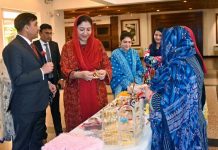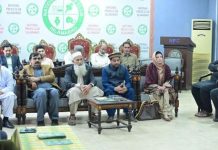Dr M Ali Hamza
Evolution in human species has made plenty of changes in its physiological as well as psychological makeup. Biases are now one of the permanent features in human nature, and historical biases are undeniable part in the nature of human social contracts. Biased sources can yield biased history, and it happens when historical reconstruction is ensured in accordance with someone’s preferences, when rationality has no room to be entertained. Therefore, presenting an account of past events by maintaining the rationalityis no less than a rocket science. Especially the happenings in pre-ICT era are difficult to decode. Historical events are generally re-fabricated by certain powerful groups of people who had their vested agendas. History related to the “Fall of Dhaka” is a classic example of history manipulation and its distortion.
Indeed the responsibility to provide room for forgery and falsification to one’s adversaries lies with the authorities of the then West-Pakistan. But how long we can use it as an excuse and let counterpart infusing self-fabricated facts of the history. One sided history can never claim to be trustworthy. It takes two to make a clap, and there is sheer possibility that one hand might not exerted the force that could end up in applaud with extreme sound of destruction. It is obligatory for the scholars to get the record straight, and distinguish between myths and realities.
A recent launch of a documentary filmproduced by ErumBinteShahid, withSenetorJavedJabbar as the executive producer is an appreciable effort to bring-up the other side of the story: the untold stories of 1971. The documentary gathered the views of international and national intellectuals who elaborately but rationally countered the false information disseminated by India andshared less known facts about 1971. One of the ways to distort history is to deny that certain events happened the way that history tells us they didn’t. To avoid historical denialism, first part of the film is based on accepting certain mistakes made by the then decision makers. Admitting your mistakes is indeed not a sign of weakness rather of maturity and granting permission to screen this film evidently speaks of the grown maturity of decision makers.
Second part of the filmpulls the mythsto pieces. It was told to the world in last 50 years that 3 million Bengalis been slaughtered during operation searchlight. Dr. Junaid Ahmed; the author of a book “Creation of Bangladesh: Myths Exploded” challenges that how come during an operation of 262 days this could be possible. He explains that a simple arithmetic can solve the riddle, because to do so every day 11, 450 people be murdered, buried and evidences been washed out, and at night the same soldiers go rapping. Sheer fiddling of numbers is obvious. Though there was political unrest and civil discontent, but how could anyone deny the fact that weaponizingMuktiBahni and invasion of East-Pakistan by Indian Army caused the separation and creation of Bangladesh. It would portray an absolute ignorance of sensible brains to excuse the attack on a sovereign nation, and history witnessed that United Nation stay mute on entering of Indian Army into the then East-Pakistan.
There are more than 32 separatist movements going on in India. Who does not know the Naxal-Moists, Khalistan, United Liberation Front of Asom, Karbi Separatism, Kamtapur Liberation Organization and many more? Is Indian not aware of its Chicken’s Neck; The Siliguri Corridor. How would it feel if China engages its army in a direct manner? What UN response would be? It is obvious, that solidarity of a sovereign nation must not be challenged in our new social contract, but why India was an exception to this rule?
The documentary is the first of its kind, sharing facts and information not revealed before. It reveals how history had been manipulated against Pakistan, purposefully creating strains between Bangladesh and Pakistan, to ensure continued regional unrest.It was necessary to balance the accounts, and content of the documentary did well in doing so. Whosoever your opinion is inclined to, the film is a must watch. Let past be the past, and now it is time re-think, re-design and re-build our diplomatic relations with Bangladesh. We need to mop away the dust of incorrect narrative. If not now than when?
A prominent Arab historian IbnKhaldun once said “Throughout history many nations have suffered a physical defeat, but that has never marked the end of a nation. But when a nation has become the victim of a psychological defeat, then that marks the end of a nation.” Though Fall of Dhaka raises the emotion of sorrow but it should raise the emotion of embarrassment. When your 3 division having 34,000 feet on ground are fighting against 8 divisionsof Indian army having 100, 000 plus soldiers, and 175, 000 MuktiBahni trained and weaponized by India. When there is a distance of thousands of miles between two portions of the same nation and between those thousands of miles reside and enemy that never accepted your existence, then surviving that long deserves an appreciation. So let’s not be a victim of a psychological defeat, and do not forget the untold stories of 1971.
The writer is a columnist and broadcast journalist and can be reached at [email protected]

















